
Bespoke solutions for a sustainable future
Sustainability has many facets, but focusing on driving down carbon dioxide emissions as the prime driver of climate change allows us to present methods of how to improve sustainability within the constraints of the tunnelling industry and minimise the environmental footprint of tunnels at all stages of their lives.
One of the masterpieces of sustainable and eco-friendly tunnelling was the construction of the world's longest railway tunnel – the Gotthard Base Tunnel. Let's take a closer look at this project and its ideas about preserving the environment. Today, many new projects like the Brenner Base Tunnel in Austria, the Bözberg Tunnel in Switzerland and metro projects worldwide are pursuing their own sustainability concepts.
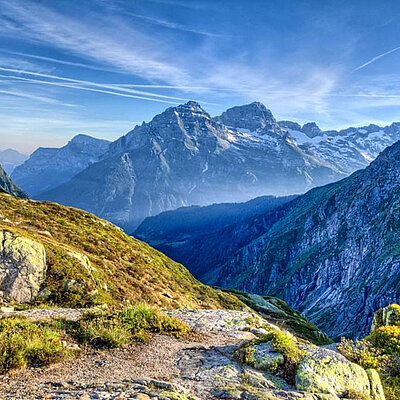
Green thinking today for a greener future
In February 1994, aware of the challenges facing their wildlife, the designers adopted the Alpine Initiative, which aims to protect the Alpine regions from road traffic. The New Rail Link through the Alps (NRLA) is the core focus of Swiss transport policy, shifting heavy goods vehicle traffic from road to rail.
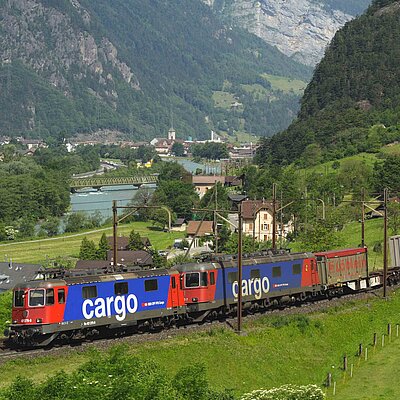
Eco-friendly transport to protect air quality
To protect air quality and keep pollution to a minimum, materials were sent to the construction sites mostly by rail. Site vehicles and machinery were equipped with particle filters.
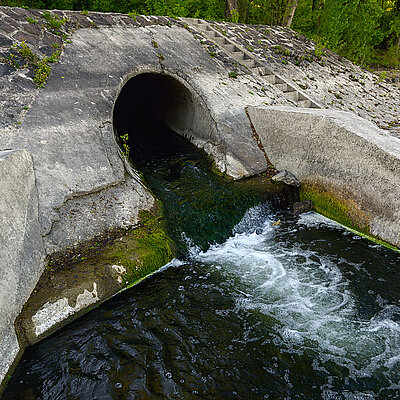
Waste water treatment
Waste water polluted by the construction work was treated and cooled following clearly defined legal requirements before being released into rivers and streams.
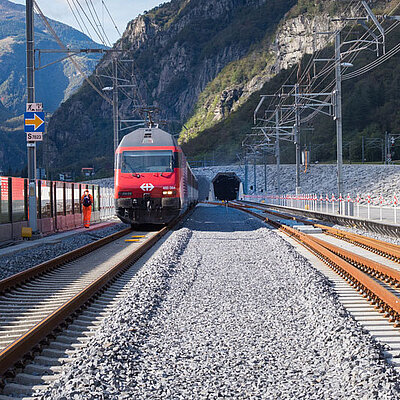
Protection against site dust and noise
The communities living near the construction site were considered and several measures were put in place to protect the population’s lungs and eardrums from the dust and noise.

Protecting the wildlife
Building an infrastructure such as this invariably has an effect on the wildlife. Therefore, the ecosystem is restored once the work is completed. If this is not possible, for example if the affected area is directly on the tunnel’s route, other steps are taken to offset the impact.
Amberg projects
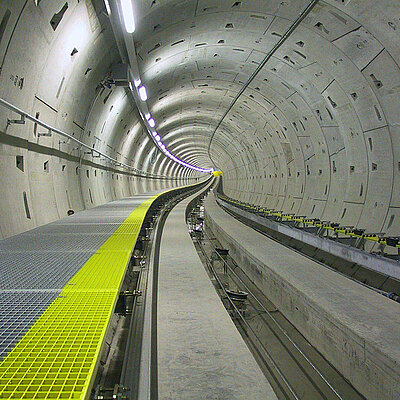
Urban metros
Originally designed to combat urban traffic congestion in large cities, metro systems are no longer confined to the role of providing transport infrastructure. Nowadays, they are becoming an urban structuring tool, around which mobility policy is developed, and a key factor in improving quality of life.
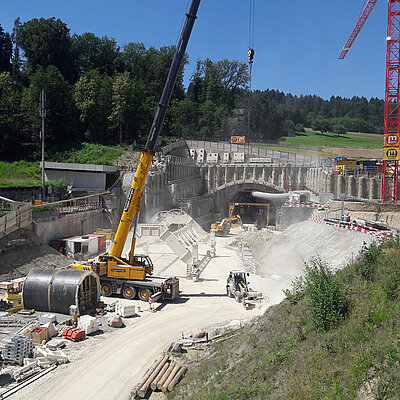
3rd tube Gubrist Tunnel, Switzerland
Since the end of 2017, the third tube of the Gubrist road tunnel has been drilled. In order to remove the 1.2 million tonnes of excavated material, SBB Cargo is using at least 1000 fully loaded freight trains between February 2018 and the end of 2019. This will save well over 100,000 truck journeys.
Switzerland
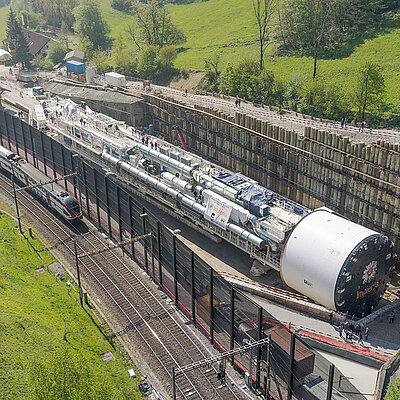
New Bözberg Tunnel
Since May 2018, SBB Cargo has been transporting 1800 tonnes of excavated material daily from Schinznach Dorf to Wildegg in three trains on behalf of SBB Infrastrukutur. By the end of May 2019, tonnes of material will have reached the Oberegg limestone quarry and will be used by Jura Cement for renaturation.
Switzerland
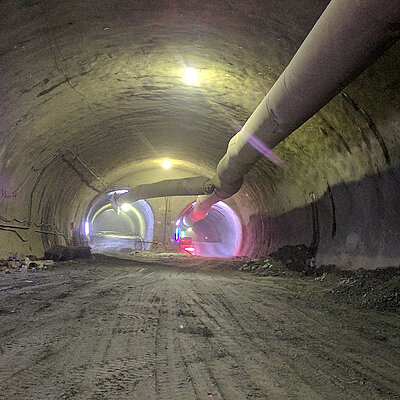
Brenner Base Tunnel
A respectful approach to nature and the use of natural resources is the underlying principle of planning and construction works for the Brenner Base Tunnel. Austria and Italy have verified the environmental compatibility of the project independently and on the basis of the applicable national laws to save the natural wildlife.
Austria
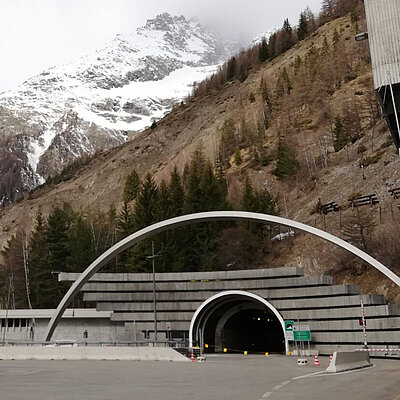
Montblanc Base Tunnel
ATMB: Autoroutes et Tunnel du Mont Blanc has implemented various environmental initiatives. After a test period, 24 water air conditioners were installed in the tunnel in order to be more environmentally friendly. This initiative makes the GEIE-TMB a leading user of natural sources. Green energy: since January 1st, 2016, all the electrical energy consumed in the Tunnel comes from solar, wind and hydraulic processes. Preserving air quality: Since 2002, the oldest heavy goods vehicles (Euro 0.1 and 2) have been gradually banned from the Mont Blanc Tunnel.
France
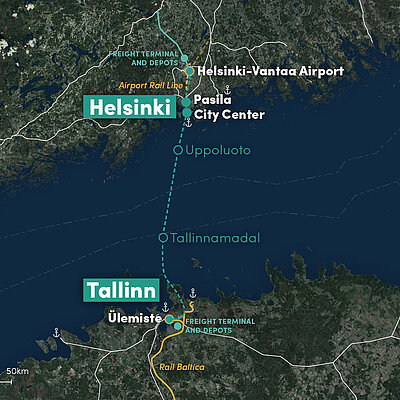
FinEst Link
Helsinki and Tallinn constitute an economic area of nearly 1.5 million people with busy traffic connections for people and freight. Both cities handle growing volumes of freight, commuters and leisure travellers for the needs of the growing cross-border area between Finland and Estonia. Amberg carried out a feasibility study that analyses from an economic and technical standpoint whether there are grounds for visioning a sub-sea railway tunnel between the two cities.
Finland - Estonia








